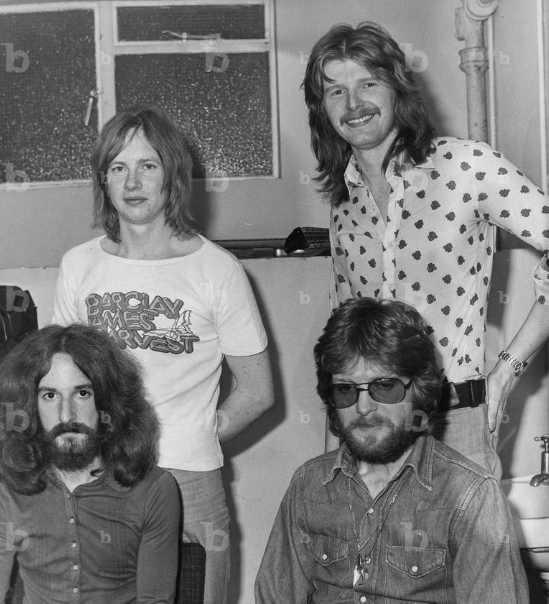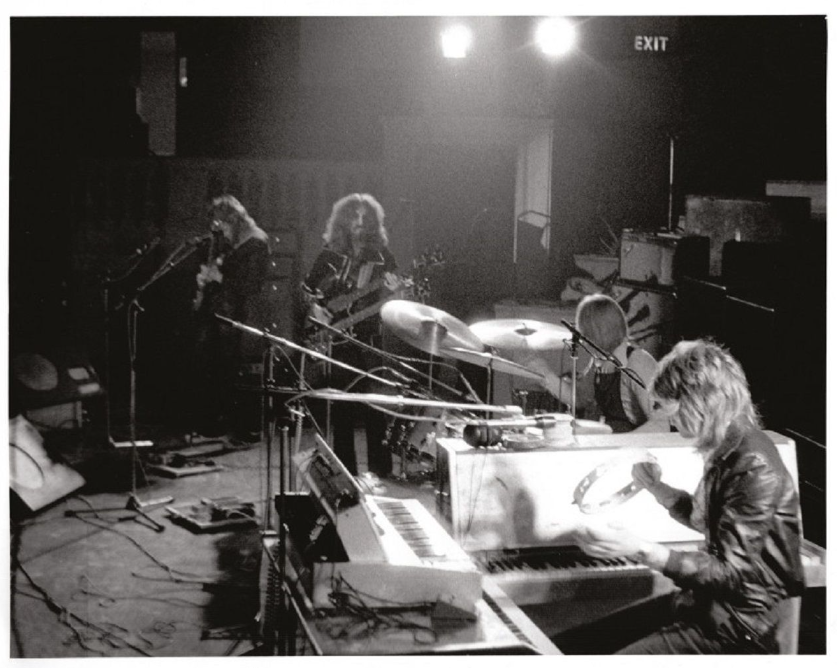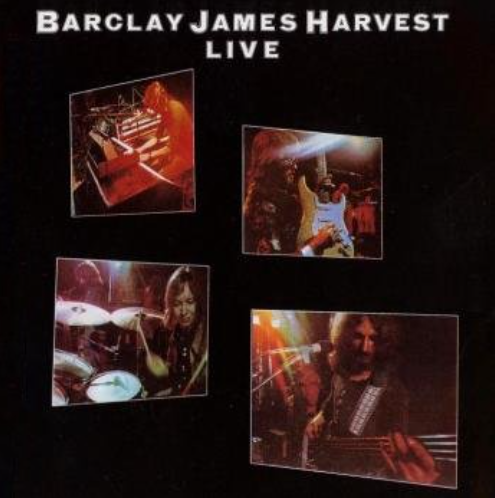
Barclay James Harvest are an English progressive rock band. They were founded in Oldham, in September 1966 by bassist/vocalist Les Holroyd (b. 1948), guitarist/vocalist John Lees (b. 1947), drummer/percussionist Mel Pritchard (1948–2004), and keyboardist/vocalist Stuart “Woolly” Wolstenholme (1947–2010).
History
After signing with EMI’s Parlophone label in the UK for one single in early 1968, they moved to the more progressively inclined Harvest label. The name of the band, according to The International Barclay James Harvest Fan Club, signifies nothing specifically. Having exhausted other possibilities, each of the band members wrote single words on pieces of paper which were drawn out of a hat one by one. All were rejected until only three were left: James, a man who used to sing with the band, Harvest because they were living in a farmhouse, and Barclay after Barclays bank, because they aspired to make money. These were then rearranged to get the best-sounding name – “Barclay James Harvest”.
Their self-titled debut album featured backing by an orchestra organized by Robert John Godfrey. It was released in mid-1970 and was heavily touted by the musicians and the record label as the next big thing in orchestral rock, but met with overwhelmingly negative reviews and weak sales. Their second album, Once Again, was followed by a tour with a full orchestra under Godfrey’s guidance. Godfrey departed over writing issues behind “Mocking Bird” – one of the group’s most consistently popular tracks – so Martyn Ford was brought in to supervise the orchestral work for their third album, Barclay James Harvest and Other Short Stories. Years later Godfrey filed a lawsuit alleging he was owed composing credits and corresponding royalties on several of Barclay James Harvest’s songs. By the release of their fourth album, Baby James Harvest, in 1972, the pressures of touring were beginning to affect the band.
After this album, they departed from EMI, moved management to Harvey Lisberg, and signed to Polydor; the move immediately resulting in greater sales. The next album, Everyone Is Everybody Else (1974) was voted 13th by listeners in Radio Caroline‘s 1977 Top 100 All Time Albums Chart. The band did a BBC Radio 1 session in 1974 for John Peel; Alan Freeman, however, would be the band’s main champion on the station in the 1970s and again when he returned from 1989 to 1993. The double live album, Barclay James Harvest Live, which followed in late 1974, was the first to chart in the UK, reaching No. 40. Time Honoured Ghosts (1975), which has “Titles”, recorded in the US, followed, and this too charted in the UK, reaching No. 32. Octoberon followed in 1976 and reached number 19 in the UK. They broke into the mainstream mainland European market with their 1977 set Gone to Earth, which contained the song “Poor Man’s Moody Blues”, a homage to the Moody Blues‘ song, “Nights in White Satin.”
Wolstenholme – whose mellotron playing was a trademark of the band’s sound in the 1970s – left in 1979 after the album XII (1978), as he began to suffer from clinical depression. He pursued a short solo career fronting the band Maestoso, before retiring from the music industry to farm. He remained inactive throughout the ’80s before rejoining John Lees when BJH essentially split in two.
The remaining three members continued. In August 1980, they played a free concert in front of the Reichstag in West Berlin, with an estimated attendance of 250,000 people. They were the first Western rock band to perform in an open-air concert in East Germany (over two years before the Berlin Wall fell), playing in Treptower Park, East Berlin on 14 July 1987 to a 170,000-plus audience.
LIVE SETS included:
Summer Soldier; Medicine Man; She Said; One Hundred Thousand Smiles Out; Galadriel; After The Day; Crazy (Over You); Mockingbird; Dark Now My Sky

